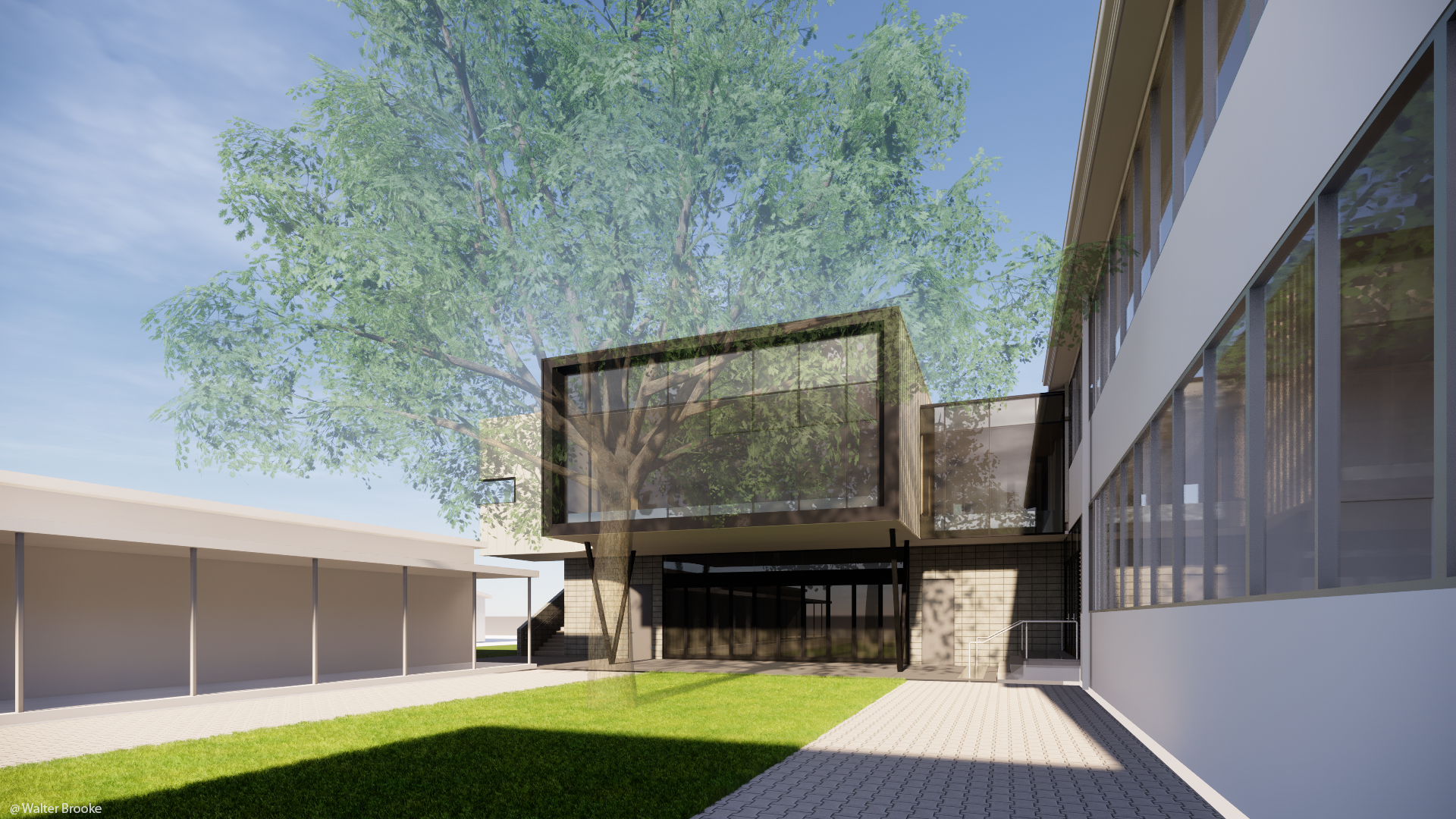Plympton International College is a self-proclaimed “centre of excellence” for reception to 12 students. It’s located on Kaurna land in Plympton, a suburb in the inner-south-west of Adelaide with a population of around 6000 people. The school is zoned and has more than 800 students currently enrolled.
About the school
Plympton International College began as William Light R-12 School in 1990, one of the first South Australian government schools to take reception to year 12 students. The school remains structured around three sub-schools (Primary – reception to year six, Middle – year seven to year nine, and Senior – year 10 to year 12).
Students are given guided pathways to university studies through partnerships with the University of Adelaide, Flinders University, and the University of South Australia.
In 2016, with 400 students enrolled at the time, the school moved to change its name in support of a transition to achieving another ‘first’. Today it is South Australia’s first bilingual school and only Chinese bilingual school. Plympton also welcomes international students from more than 40 cultures and nationalities.
The transition to Chinese bilingual education
In 2017, the school began delivering 50 per cent of lessons in Chinese, with an immersive bilingual learning experience and a specialist Chinese Mandarin language program. Students now graduate fluent in English and Chinese, “one of the most spoken languages in the world”.
Former principal Linda Richardson said then that, “research shows that students in bilingual programs master the language far more quickly”.
The program was initially offered to year three students in 2017, followed by years four to seven, and then students in years eight to 12 from 2022.
Benefits of Chinese bilingual education
The school describes the benefits of bilingual learning as “developing students’ language proficiency and intercultural understanding and preparing them to engage meaningfully and purposefully in a globalised world”.
For parents and carers, an international education exposes children to a globally recognised curriculum and qualification, as they work towards university studies and, ultimately, their careers.
A February 2023 white paper by ISC Research estimates that there are around 6.5 million students attending more than 13,000 schools around the world. That’s a more than 50 per cent increase from the 4.2 million students attending 8700 schools ten years ago in 2013.
The reasons given for this growth?
“Governments in some developing countries actively supporting the expansion of international schools”, the rising number of expatriate professionals travelling between countries, and the growing trend for young people to seek out higher education experiences overseas. In fact, OECD data suggests that the number of students studying at a university outside of their home country will also double, from 4.5 million to 8 million in 2025.
Plympton International embraces the model because of the established benefits of learning another language (improved brain development, English literacy and cognitive flexibility). But looking at this data the real value is in guiding the professionals of tomorrow to be able to communicate with more people across the globe (and more effectively) , and broadening their career opportunities.
Learning another language means engaging different parts of the brain, for example when comparing and contrasting a second language with English. It’s an opportunity to more thoroughly examine how the English language ‘works’ which leads to better reading and writing skills. Chinese in particular is a great workout for the brain as it requires both left and right temporal lobes to actively function, encouraging an advanced ability to multitask.
There’s also the added benefit of instilling an appreciation for other cultures, and, at Plympton International College, a deep knowledge of Chinese culture.

Exciting initiatives at Plympton International College
In 2020, the school underwent a $3.06 million capital works upgrade and added a performing arts facility, multipurpose learning areas, as well as refurbished visual arts and bilingual learning areas. A $2.25 million modular building was also constructed. This added four more general learning areas, two serviced learning areas, a teacher preparation space, meeting space and breakout hub to the school’s existing buildings.
The performing arts facility has enabled to the college to launch an annual college musical, with then principal, Amy Whyte, commenting, “0pportunities like this are now possible because of the facilities our students have every day to learn in”.
In the State Government’s 2023-24 Budget, Plympton International was identified to receive part of the planned $100.2 million investment across 66 South Australian schools and pre-schools. Facility upgrades and replacements, aged building demolitions, bitumen repairs, roof repairs, and toilet, heating, ventilation and cooling upgrades are all in the list.
At Plympton International College, $14 million has been pledged to replace older buildings with modern multi-storey replacements, as part of a $64.7 million capital works project.
“We are incredibly proud of our college and what we have to offer, and this additional funding will ensure we can welcome even more students to our community in the coming years”, said current acting Plympton International College Principal Roy Webb.
“New, modern learning facilities will enable us to continue delivering a high-quality learning program for our students and we look forward to seeing the work get under way.”








